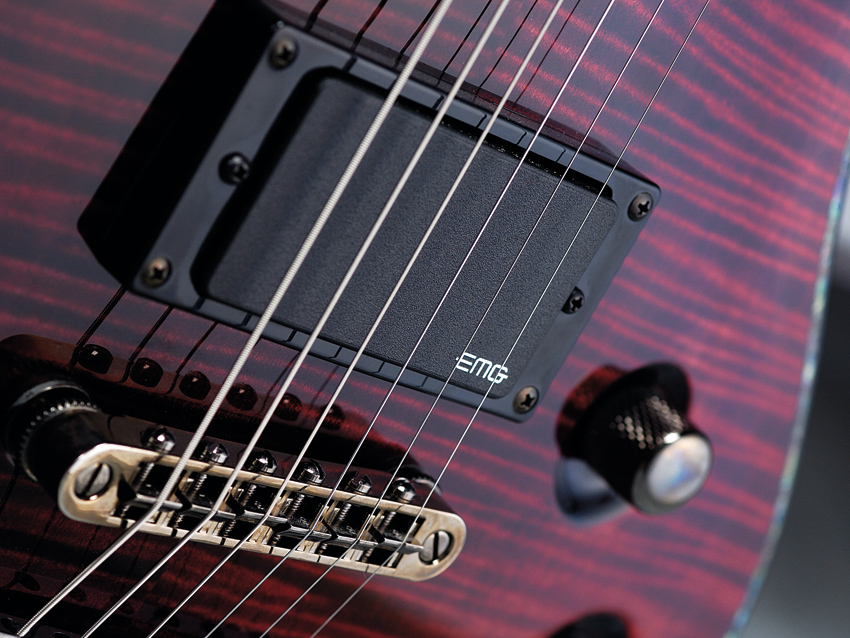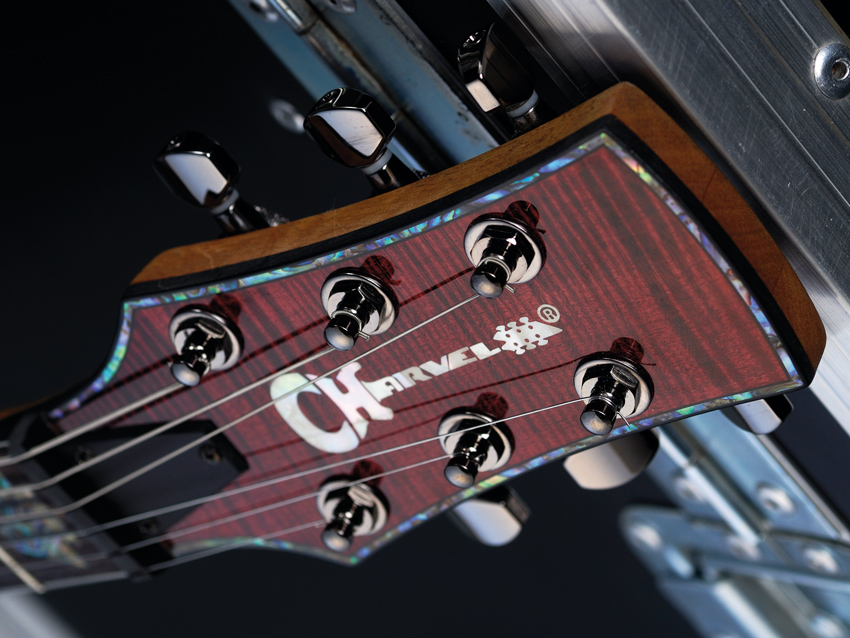MusicRadar Verdict
A good guitar with solid tones, but has its work cut out against Schecter, ESP and PRS SE.
Pros
- +
Light weight; monster tones.
Cons
- -
Hardly a traditional Charvel design.
MusicRadar's got your back

Charvel Desolation DC-1 ST

Charvel Desolation DC-1 ST

Charvel Desolation DC-1 ST
Since Fender's acquisition of the Charvel brand in 2002, the parent company has remained pretty true to the original tearaway teen's mantra of producing hot-rodded rock guitars.
After the Art Series and its association with Edward Van Halen (surely the most famous of the original Charvel users from the late seventies) piqued interest, along came the truly awesome San Dimas range, which stayed even closer to the original West Coast vibe.
"The DC-1 performs very well indeed, offering flawless playing comfort that's designed with hard rock and modern metal techniques in mind."
Today, with a San Dimas Style 1 costing a mere £619 and selling very nicely, we'd assumed that Charvel would consider continuing along these 'heritage' lines. However, in the spirit of evolution comes the new Desolation range, which includes a number of versions, also at various price points, of three designs that Charvel has not previously utilised - the Skatecaster SK-1, DS-1 and DC-1, all available in Floyd Rose or hardtail models.
The double-cut DC-1 ST is arguably the one that has fewest ties to Charvels of the past. With its slight carving within the lower cutaway and the asymmetrical shape, the guitar is a mix between the PRS SE double-cuts and ESP LTD Viper ranges; thanks in part to its hardtail denomination, it also weighs in at under 3kg.
To keep tuning stable, all ST guitars are loaded with locking Charvel tuners and, at 52mm width, the tune-o-matic bridge is a full two millimetres narrower than the Floyd Rose's saddle spacing. As with other Desolations we're tested, the binding's masking lip by the heel is disappointing - and we prefer the flat black finish to that of our trans-flame maple option, in this scenario anyway.
But the DC-1 does perform very well indeed, offering flawless playing comfort that's designed with hard rock and modern metal techniques in mind. Any players more used to a Gibson-style neck may be deterred by its slinkier feel, but then that's what Charvel has always been about.
Sounds
The DC-1 ST's Floyd-loaded compadres are meaty specimens, but this model possesses the fattest tone of all - no doubt due to the fact that the stoptail is screwed straight into the through-neck. Also, when using the toggle's central position, the master tone does allow you to tailor any rough edges - great for cleaner passages in the style of Zakk Wylde.
Want all the hottest music and gear news, reviews, deals, features and more, direct to your inbox? Sign up here.
The guitar's lighter weight may take a little time to get used to, but it is great to play nonetheless. And although we're still not sure where the DC is aimed in the market, there's not much to complain about as far as its tone and playability are concerned.
The DC-1 is far removed from the hot-rodded custom S-types for which Charvel is loved historically, but we doubt many of today's metal teenagers will care too much about that. Well worth a look.
Simon Bradley is a guitar and especially rock guitar expert who worked for Guitarist magazine and has in the past contributed to world-leading music and guitar titles like MusicRadar (obviously), Guitarist, Guitar World and Louder. What he doesn't know about Brian May's playing and, especially, the Red Special, isn't worth knowing.